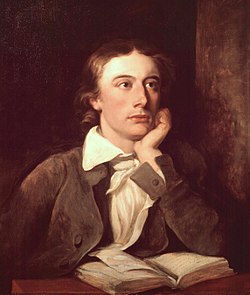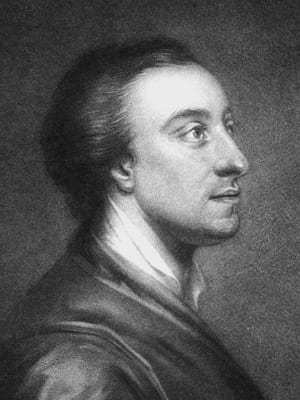GENEROUS POEMS
This page is specially prepared for generous poems. You can reach newest and popular generous poems from this page. You can vote and comment on the generous poems you read.
Grace Darling
Among the dwellers in the silent fields
The natural heart is touched, and public way
And crowded street resound with ballad strains,
Inspired by one whose very name bespeaks
.....
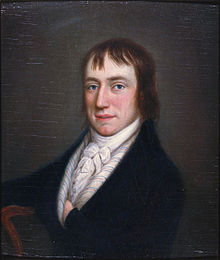
William Wordsworth
Among the dwellers in the silent fields
The natural heart is touched, and public way
And crowded street resound with ballad strains,
Inspired by one whose very name bespeaks
.....

William Wordsworth
People Like Him
People liked him, not because
He was rich or known to fame;
He had never won applause
As a star in any game.
.....
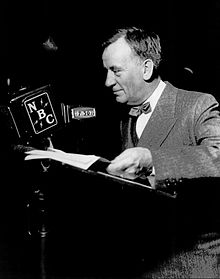
Edgar Albert Guest
People liked him, not because
He was rich or known to fame;
He had never won applause
As a star in any game.
.....

Edgar Albert Guest
A Wish
I ask not that my bed of death
From bands of greedy heirs be free;
For these besiege the latest breath
Of fortune's favoured sons, not me.
.....
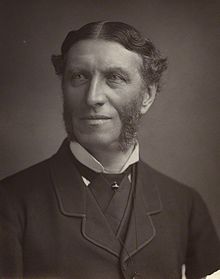
Matthew Arnold
I ask not that my bed of death
From bands of greedy heirs be free;
For these besiege the latest breath
Of fortune's favoured sons, not me.
.....

Matthew Arnold
Elegy Xix. - Written In Spring, 1743
Again the labouring hind inverts the soil;
Again the merchant ploughs the tumid wave;
Another spring renews the soldier's toil,
And finds me vacant in the rural cave.
.....
William Shenstone
Again the labouring hind inverts the soil;
Again the merchant ploughs the tumid wave;
Another spring renews the soldier's toil,
And finds me vacant in the rural cave.
.....
William Shenstone
Elegy Xxv. To Delia, With Some Flowers
Whate'er could Sculpture's curious art employ,
Whate'er the lavish hand of Wealth can shower,
These would I give-and every gift enjoy,
That pleased my fair-but Fate denies the power.
.....
William Shenstone
Whate'er could Sculpture's curious art employ,
Whate'er the lavish hand of Wealth can shower,
These would I give-and every gift enjoy,
That pleased my fair-but Fate denies the power.
.....
William Shenstone
R. S. S.
All-worshipped Gold! thou mighty mystery
Say by what name shall I address thee rather,
Our blessing, or our bane? Without thy aid,
The generous pangs of pity but distress
.....
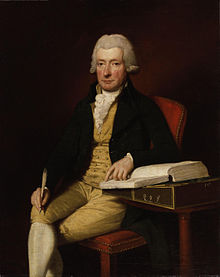
William Cowper
All-worshipped Gold! thou mighty mystery
Say by what name shall I address thee rather,
Our blessing, or our bane? Without thy aid,
The generous pangs of pity but distress
.....

William Cowper
Absalom And Achitophel
In pious times, ere priest-craft did begin,
Before polygamy was made a sin;
When man, on many, multipli'd his kind,
Ere one to one was cursedly confin'd:
.....
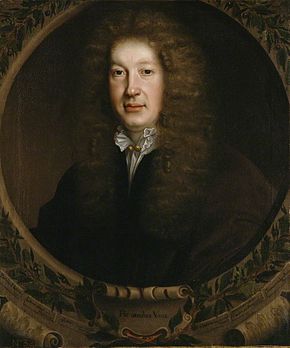
John Dryden
In pious times, ere priest-craft did begin,
Before polygamy was made a sin;
When man, on many, multipli'd his kind,
Ere one to one was cursedly confin'd:
.....

John Dryden
The Temple Of Friendship
Sacred to peace, within a wood's recess,
A blest retreat, where courtiers never press,
A temple stands, where art did never try
With pompous wonders to enchant the eye;
.....
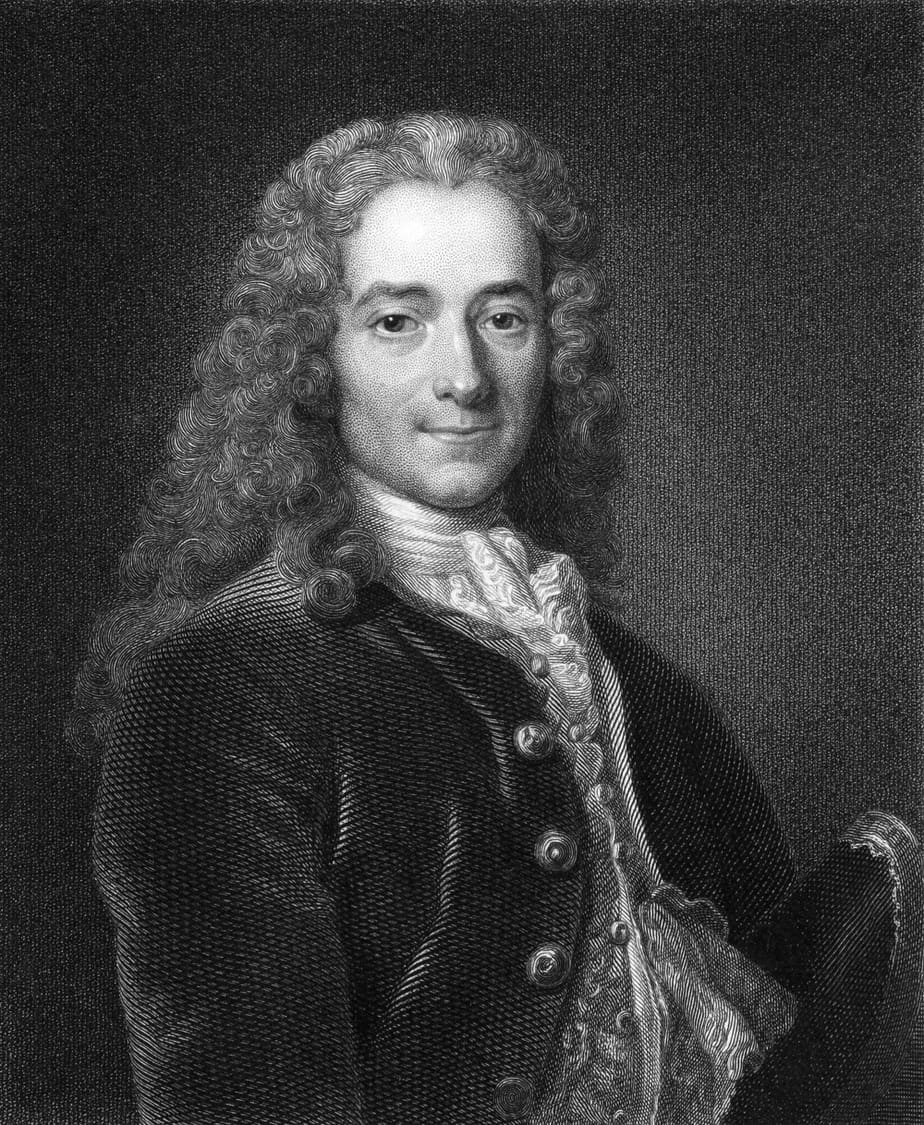
Voltaire
Sacred to peace, within a wood's recess,
A blest retreat, where courtiers never press,
A temple stands, where art did never try
With pompous wonders to enchant the eye;
.....

Voltaire
The Cross
'The cross, if rightly borne, shall be
No burden, but support to thee;'
So, moved of old time for our sake,
The holy monk of Kempen spake.
.....
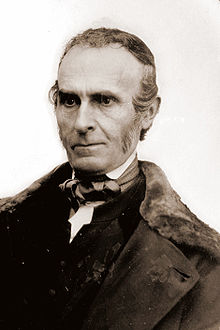
John Greenleaf Whittier
'The cross, if rightly borne, shall be
No burden, but support to thee;'
So, moved of old time for our sake,
The holy monk of Kempen spake.
.....

John Greenleaf Whittier
To Edward Clodd
Friend, in whose friendship I am twice well-starred,
A debt not time may cancel is your due;
For was it not your praise that earliest drew,
On me obscure, that chivalrous regard,
.....
William Watson
Friend, in whose friendship I am twice well-starred,
A debt not time may cancel is your due;
For was it not your praise that earliest drew,
On me obscure, that chivalrous regard,
.....
William Watson
All In A Family Way
My banks are all furnished with rags,
So thick, even Freddy can't thin 'em;
I've torn up my old money-bags,
Having little or nought to put in 'em.
.....
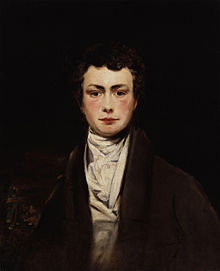
Thomas Moore
My banks are all furnished with rags,
So thick, even Freddy can't thin 'em;
I've torn up my old money-bags,
Having little or nought to put in 'em.
.....

Thomas Moore
The Suicide
Bereft of soul
My body shall be bare.
Bereft of body
My soul shall be bare.
.....
Kamala Das
Bereft of soul
My body shall be bare.
Bereft of body
My soul shall be bare.
.....
Kamala Das
Admetus
To my friend, Ralph Waldo Emerson.
He who could beard the lion in his lair,
.....
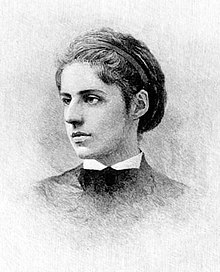
Emma Lazarus
To my friend, Ralph Waldo Emerson.
He who could beard the lion in his lair,
.....

Emma Lazarus
Hannibal
Was there even a cause too lost,
Ever a cause that was lost too long,
Or that showed with the lapse of time to vain
For the generous tears of youth and song?
.....
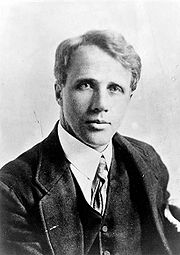
Robert Frost
Was there even a cause too lost,
Ever a cause that was lost too long,
Or that showed with the lapse of time to vain
For the generous tears of youth and song?
.....

Robert Frost
To The Pious Memory Of The Accomplished Young Lady Mrs. Anne Killigrew
Thou youngest virgin-daughter of the skies,
Made in the last promotion of the Blest;
Whose palms, new pluck'd from Paradise,
In spreading branches more sublimely rise,
.....

John Dryden
Thou youngest virgin-daughter of the skies,
Made in the last promotion of the Blest;
Whose palms, new pluck'd from Paradise,
In spreading branches more sublimely rise,
.....

John Dryden
Speak!
Why art thou silent! Is thy love a plant
Of such weak fibre that the treacherous air
Of absence withers what was once so fair?
Is there no debt to pay, no boon to grant?
.....

William Wordsworth
Why art thou silent! Is thy love a plant
Of such weak fibre that the treacherous air
Of absence withers what was once so fair?
Is there no debt to pay, no boon to grant?
.....

William Wordsworth
A Hidden Life
Proudly the youth, sudden with manhood crowned,
Went walking by his horses, the first time,
That morning, to the plough. No soldier gay
Feels at his side the throb of the gold hilt
.....
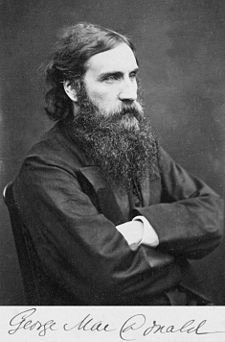
George Macdonald
Proudly the youth, sudden with manhood crowned,
Went walking by his horses, the first time,
That morning, to the plough. No soldier gay
Feels at his side the throb of the gold hilt
.....

George Macdonald
Vixit
Nurse not your grief, nor make obsequious moan
When I have shed this flesh I love so well,
Nor slowly toll the dull heart-bruising knell,
Nor carve my name in customary stone;
.....
John Le Gay Brereton
Nurse not your grief, nor make obsequious moan
When I have shed this flesh I love so well,
Nor slowly toll the dull heart-bruising knell,
Nor carve my name in customary stone;
.....
John Le Gay Brereton
Character Of The Happy Warrior
Who is the happy Warrior? Who is he
That every man in arms should wish to be?
-It is the generous Spirit, who, when brought
Among the tasks of real life, hath wrought
.....

William Wordsworth
Who is the happy Warrior? Who is he
That every man in arms should wish to be?
-It is the generous Spirit, who, when brought
Among the tasks of real life, hath wrought
.....

William Wordsworth
All Souls' Night
Epilogue to “A Vision'
Midnight has come, and the great Christ Church Bell
And may a lesser bell sound through the room;
.....
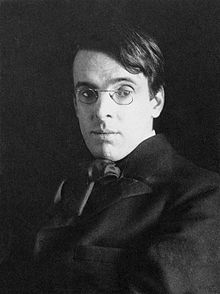
William Butler Yeats
Epilogue to “A Vision'
Midnight has come, and the great Christ Church Bell
And may a lesser bell sound through the room;
.....

William Butler Yeats
Go Plant A Tree
God, what a joy it is to plant a tree,
And from the sallow earth to watch it rise,
Lifting its emerald branches to the skies
In silent adoration; and to see
.....
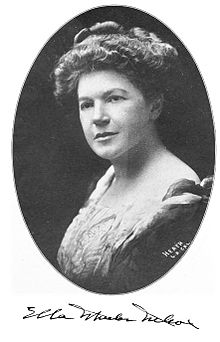
Ella Wheeler Wilcox
God, what a joy it is to plant a tree,
And from the sallow earth to watch it rise,
Lifting its emerald branches to the skies
In silent adoration; and to see
.....

Ella Wheeler Wilcox
The Iliad Of Homer: Translated Into English Blank Verse: Book I.
Argument Of The First Book.
The book opens with an account of a pestilence that prevailed in the Grecian camp, and the cause of it is assigned. A council is called, in which fierce altercation takes place between Agamemnon and Achilles. The latter solemnly renounces the field. Agamemnon, by his heralds, demands Brisë is, and Achilles resigns her. He makes his complaint to Thetis, who undertakes to plead his cause with Jupiter. She pleads it, and prevails. The book concludes with an account of what passed in Heaven on that occasion.
.....

William Cowper
Argument Of The First Book.
The book opens with an account of a pestilence that prevailed in the Grecian camp, and the cause of it is assigned. A council is called, in which fierce altercation takes place between Agamemnon and Achilles. The latter solemnly renounces the field. Agamemnon, by his heralds, demands Brisë is, and Achilles resigns her. He makes his complaint to Thetis, who undertakes to plead his cause with Jupiter. She pleads it, and prevails. The book concludes with an account of what passed in Heaven on that occasion.
.....

William Cowper
Scots Prologue For Mr. Sutherland
WHAT needs this din about the town o' Lon'on,
How this new play an' that new sang is comin?
Why is outlandish stuff sae meikle courted?
Does nonsense mend, like brandy, when imported?
.....

Robert Burns
WHAT needs this din about the town o' Lon'on,
How this new play an' that new sang is comin?
Why is outlandish stuff sae meikle courted?
Does nonsense mend, like brandy, when imported?
.....

Robert Burns
Fingal - Book Iii
ARGUMENT.
Cuthullin, pleased with the story of Carril, insists with that bard for more of his songs. He relates the actions of Fingal in Lochlin, and death of Agandecca, the beautiful sister of Swaran. He had scarce finished, when Calmar, the son of Matha, who had advised the first battle, came wounded from the field, and told them of Swaran's design to surprise the remains of the Irish army. He himself proposes to withstand singly the whole force of the enemy, in a narrow pass, till the Irish should make good their retreat. Cuthullin, touched with the gallant proposal of Calmar, resolves to accompany him and orders Carril to carry off the few that remained of the Irish. Morning comes, Calmar dies of his wounds; and the ships of the Caledonians appearing, Swaran gives over the pursuit of the Irish, and returns to oppose Fingal's landing. Cuthullin, ashamed, after his defeat, to appear before Fingal re tires to the cave of Tura. Fingal engages the enemy, puts them to flight: but the coming on of night makes the victory not decisive. The king, who had observed the gallant behavior of his grandson Oscar, gives him advice concerning his conduct in peace and war. He recommends to him to place the example of his fathers before his eyes, as the best model for his conduct; which introduces the episode concerning Fainasóllis, the daughter of the king of Craca, whom Fingal had taken under his protection in his youth. Fillan and Oscar are despatched to observe the motions of the enemy by night: Gaul, the son of Morni, desires the command of the army in the next battle, which Fingal promises to give him. Some general reflections of the poet close the third day.
.....
James Macpherson
ARGUMENT.
Cuthullin, pleased with the story of Carril, insists with that bard for more of his songs. He relates the actions of Fingal in Lochlin, and death of Agandecca, the beautiful sister of Swaran. He had scarce finished, when Calmar, the son of Matha, who had advised the first battle, came wounded from the field, and told them of Swaran's design to surprise the remains of the Irish army. He himself proposes to withstand singly the whole force of the enemy, in a narrow pass, till the Irish should make good their retreat. Cuthullin, touched with the gallant proposal of Calmar, resolves to accompany him and orders Carril to carry off the few that remained of the Irish. Morning comes, Calmar dies of his wounds; and the ships of the Caledonians appearing, Swaran gives over the pursuit of the Irish, and returns to oppose Fingal's landing. Cuthullin, ashamed, after his defeat, to appear before Fingal re tires to the cave of Tura. Fingal engages the enemy, puts them to flight: but the coming on of night makes the victory not decisive. The king, who had observed the gallant behavior of his grandson Oscar, gives him advice concerning his conduct in peace and war. He recommends to him to place the example of his fathers before his eyes, as the best model for his conduct; which introduces the episode concerning Fainasóllis, the daughter of the king of Craca, whom Fingal had taken under his protection in his youth. Fillan and Oscar are despatched to observe the motions of the enemy by night: Gaul, the son of Morni, desires the command of the army in the next battle, which Fingal promises to give him. Some general reflections of the poet close the third day.
.....
James Macpherson
Calthon And Colmal
This piece, as many more of Ossian's compositions, is addressed to one of the first Christian missionaries. The story of the poem is handed down by tradition thus:- In the country of the Britons, between the walls, two chiefs lived in the days of Fingal, Dunthalmo, Lord of Teutha, supposed to be the Tweed; and Rathmor, who dwelt at Clutha, well known to be the river Clyde. Rathmor was not more renowned for his generosity and hospitality, than Dunthalmo was infamous for his cruelty and ambition. Dunthalmo, through envy, or on account of some private feuds, which subsisted between the families, murdered Rathmor at a feast; but being afterward touched with remorse, he educated the two sons of Rathmor, Calthon and Colmar, in his own house. They growing up to man's estate, dropped some hints that they intended to revenge the death of their father, upon which Dunthalmo shut them up in two caves, on the banks of Teutha, intending to take them off privately. Colmal, the daughter of Dunthalmo, who was secretly in love with Calthon, helped him to make his escape from prison, and hied with him to Fingal, disguised in the habit of a young warrior, and implored his aid against Dunthalmo. Fingal sent Ossian with three hundred men to Colmar's relief. Dunthalmo, having previously murdered Colmar, came to a battle with Ossian, but he was killed by that hero, and his army totally defeated. Calthon married Colmal his deliverer; and Ossian returned to Morven.
Pleasant is the voice of thy song, thou lonely dweller of the rock! It comes on the sound of the stream, along the narrow vale. My soul awakes, O stranger, in the midst of my hall. I stretch my hand to the spear, as in the days of other years. I stretch my hand, but it is feeble: and the sigh of my bosom grows. Wilt thou not listen, son of the rock! to the song of Ossian? My soul is full of other times; the joy of my youth returns. Thus the sun appears in the west, after the steps of his brightness have moved behind a storm: the green hills lift their dewy heads: the blue streams rejoice in the vale. The aged hero comes forth on his stair; his gray hair glitters in the beam. Dost thou not behold, son of the rock! a shield in Ossian's hall? It is marked with the strokes of battle; and the brightness of its bosses has failed. That shield the great Dunthalmo bore, the chief of streamy Teutha. Dunthalmo bore it in battle before he fell by Ossian's spear. Listen, son of the rock! to the tale of other years.
.....
James Macpherson
This piece, as many more of Ossian's compositions, is addressed to one of the first Christian missionaries. The story of the poem is handed down by tradition thus:- In the country of the Britons, between the walls, two chiefs lived in the days of Fingal, Dunthalmo, Lord of Teutha, supposed to be the Tweed; and Rathmor, who dwelt at Clutha, well known to be the river Clyde. Rathmor was not more renowned for his generosity and hospitality, than Dunthalmo was infamous for his cruelty and ambition. Dunthalmo, through envy, or on account of some private feuds, which subsisted between the families, murdered Rathmor at a feast; but being afterward touched with remorse, he educated the two sons of Rathmor, Calthon and Colmar, in his own house. They growing up to man's estate, dropped some hints that they intended to revenge the death of their father, upon which Dunthalmo shut them up in two caves, on the banks of Teutha, intending to take them off privately. Colmal, the daughter of Dunthalmo, who was secretly in love with Calthon, helped him to make his escape from prison, and hied with him to Fingal, disguised in the habit of a young warrior, and implored his aid against Dunthalmo. Fingal sent Ossian with three hundred men to Colmar's relief. Dunthalmo, having previously murdered Colmar, came to a battle with Ossian, but he was killed by that hero, and his army totally defeated. Calthon married Colmal his deliverer; and Ossian returned to Morven.
Pleasant is the voice of thy song, thou lonely dweller of the rock! It comes on the sound of the stream, along the narrow vale. My soul awakes, O stranger, in the midst of my hall. I stretch my hand to the spear, as in the days of other years. I stretch my hand, but it is feeble: and the sigh of my bosom grows. Wilt thou not listen, son of the rock! to the song of Ossian? My soul is full of other times; the joy of my youth returns. Thus the sun appears in the west, after the steps of his brightness have moved behind a storm: the green hills lift their dewy heads: the blue streams rejoice in the vale. The aged hero comes forth on his stair; his gray hair glitters in the beam. Dost thou not behold, son of the rock! a shield in Ossian's hall? It is marked with the strokes of battle; and the brightness of its bosses has failed. That shield the great Dunthalmo bore, the chief of streamy Teutha. Dunthalmo bore it in battle before he fell by Ossian's spear. Listen, son of the rock! to the tale of other years.
.....
James Macpherson
Report To Crazy Horse
All the Sioux were defeated. Our clan
got poor, but a few got richer.
They fought two wars. I did not
take part. No one remembers your vision
.....
William Stafford
All the Sioux were defeated. Our clan
got poor, but a few got richer.
They fought two wars. I did not
take part. No one remembers your vision
.....
William Stafford
The Relic
TOKEN Of friendship true and tried,
From one whose fiery heart of youth
With mine has beaten, side by side,
For Liberty and Truth;
.....

John Greenleaf Whittier
TOKEN Of friendship true and tried,
From one whose fiery heart of youth
With mine has beaten, side by side,
For Liberty and Truth;
.....

John Greenleaf Whittier
Aims At Happiness
HOW oft has sounded whip and wheel,
How oft is buckled spur to heel,
How many a steed in short relay
Stands harnessed on the king's highway,
.....
Jane Taylor
HOW oft has sounded whip and wheel,
How oft is buckled spur to heel,
How many a steed in short relay
Stands harnessed on the king's highway,
.....
Jane Taylor
Frances
SHE will not sleep, for fear of dreams,
But, rising, quits her restless bed,
And walks where some beclouded beams
Of moonlight through the hall are shed.
.....
Charlotte Brontë
SHE will not sleep, for fear of dreams,
But, rising, quits her restless bed,
And walks where some beclouded beams
Of moonlight through the hall are shed.
.....
Charlotte Brontë
The Eagle.
Nature, what heart may here by thee,
Most truly brave be styled?
The tender mother's it must be,
When struggling for her child!
.....
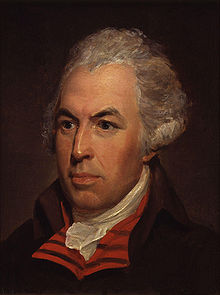
William Hayley
Nature, what heart may here by thee,
Most truly brave be styled?
The tender mother's it must be,
When struggling for her child!
.....

William Hayley
Conlath And Cuthona
ARGUMENT.
Conlath was the youngest of Morni's sons, and brother to the celebrated Gaul. He was in love with Cuthona, the daughter of Rumar, when Toscar, the son of Kenfena, accompanied by Fercuth his friend, arrived from Ireland, at Mora, where Conlath dwelt. He was hospitably received, and according to the custom of the times, feasted three days with Conlath. On the fourth he set sail, and coasting the island of waves, one of the Hebrides, be saw Cuthona hunting, fell in love with her, and carried her away, by force, in his ship. He was forced, by stress of weather, into I-thona, a desert isle. In the mean time Conlath hearing of the rape, sailed after him, and found him on the point of sailing for the coast of Ireland. They fought: and they and their followers fell by mutual wounds. Cuthona did not long survive: for she died of grief the third day after. Fingal hearing of their unfortunate death, sent Stormal the son of Moran to bury them, but forgot to send a bard to sing the funeral song over their tombs. The ghost of Conlath comes long after to Ossian, to entreat him to transmit to posterity, his and Cuthona's fame. For it was the opinion of the times, that the souls of the deceased were not happy, till their elegies were composed by a bard.
.....
James Macpherson
ARGUMENT.
Conlath was the youngest of Morni's sons, and brother to the celebrated Gaul. He was in love with Cuthona, the daughter of Rumar, when Toscar, the son of Kenfena, accompanied by Fercuth his friend, arrived from Ireland, at Mora, where Conlath dwelt. He was hospitably received, and according to the custom of the times, feasted three days with Conlath. On the fourth he set sail, and coasting the island of waves, one of the Hebrides, be saw Cuthona hunting, fell in love with her, and carried her away, by force, in his ship. He was forced, by stress of weather, into I-thona, a desert isle. In the mean time Conlath hearing of the rape, sailed after him, and found him on the point of sailing for the coast of Ireland. They fought: and they and their followers fell by mutual wounds. Cuthona did not long survive: for she died of grief the third day after. Fingal hearing of their unfortunate death, sent Stormal the son of Moran to bury them, but forgot to send a bard to sing the funeral song over their tombs. The ghost of Conlath comes long after to Ossian, to entreat him to transmit to posterity, his and Cuthona's fame. For it was the opinion of the times, that the souls of the deceased were not happy, till their elegies were composed by a bard.
.....
James Macpherson
Love And Honor
Sed neque Medorum silvae, ditissima terra
Nec pulcher Ganges, atque auro turbidus Haemus,
Laudibus Angligenum certent; non Bactra, nec Indi,
Totaque thuriferis Panchaia pinguis arenis.
.....
William Shenstone
Sed neque Medorum silvae, ditissima terra
Nec pulcher Ganges, atque auro turbidus Haemus,
Laudibus Angligenum certent; non Bactra, nec Indi,
Totaque thuriferis Panchaia pinguis arenis.
.....
William Shenstone
Democracy
BEARER of Freedom's holy light,
Breaker of Slavery's chain and rod,
The foe of all which pains the sight,
Or wounds the generous ear of God!
.....

John Greenleaf Whittier
BEARER of Freedom's holy light,
Breaker of Slavery's chain and rod,
The foe of all which pains the sight,
Or wounds the generous ear of God!
.....

John Greenleaf Whittier
The Outlaw
Before the fair Aurora spread
Her azure mantle o'er the skies,
While sleep its pleasing influence shed,
On grateful mortals weary eyes,
.....
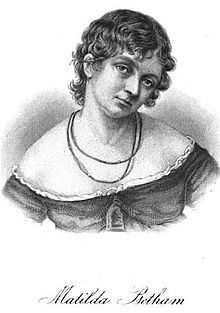
Matilda Betham
Before the fair Aurora spread
Her azure mantle o'er the skies,
While sleep its pleasing influence shed,
On grateful mortals weary eyes,
.....

Matilda Betham
Sheridan
Embalm'd in fame, and sacred from decay,
What mighty name, in arms, in arts, or verse,
From England claims this consecrated day.
Her nobles crowding round the shadowy hearse?
.....
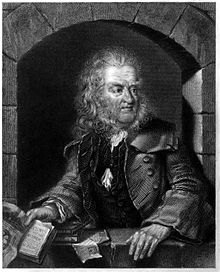
Thomas Gent
Embalm'd in fame, and sacred from decay,
What mighty name, in arms, in arts, or verse,
From England claims this consecrated day.
Her nobles crowding round the shadowy hearse?
.....

Thomas Gent
Berrathah
ARGUMENT.
Fingal, in his voyage to Lochlin, whither he had been invited by Starno, the father of Agandecca, touched at Berrathon an island of Scandinavia, where he was kindly entertained by Larthmor, the petty king of the place, who was a vassal of the supreme kings of Lochlin. The hospitality of Larthmor gained him Fingal's friendship, which that hero manifested, after the imprisonment of Larthmor by his own son, by sending Ossian and Toscar, the father of Malvina, so often mentioned, to rescue Larthmor, and to punish the unnatural behavior of Uthal. Uthal was handsome, and, by the ladies, much admired. Nina-thoma, the beautiful daughter of Tor-thoma, a neighboring prince, fell in love and fled with him. He proved inconstant; for another lady, whose name is not mentioned, gaining his affections, he confined Nina-thoma to a desert island, near the coast of Berrathon. She was relieved by Ossian, who, in company with Toscar, landing on Berrathon, defeated the forces of Uthal, and killed him in single combat. Nina-thoma, whose love not all the bad behavior of Uthal could erase, hearing of his death, died of grief. In the mean time Larthmor is restored, and Ossian and Toscar return in triumph to Fingal.
.....
James Macpherson
ARGUMENT.
Fingal, in his voyage to Lochlin, whither he had been invited by Starno, the father of Agandecca, touched at Berrathon an island of Scandinavia, where he was kindly entertained by Larthmor, the petty king of the place, who was a vassal of the supreme kings of Lochlin. The hospitality of Larthmor gained him Fingal's friendship, which that hero manifested, after the imprisonment of Larthmor by his own son, by sending Ossian and Toscar, the father of Malvina, so often mentioned, to rescue Larthmor, and to punish the unnatural behavior of Uthal. Uthal was handsome, and, by the ladies, much admired. Nina-thoma, the beautiful daughter of Tor-thoma, a neighboring prince, fell in love and fled with him. He proved inconstant; for another lady, whose name is not mentioned, gaining his affections, he confined Nina-thoma to a desert island, near the coast of Berrathon. She was relieved by Ossian, who, in company with Toscar, landing on Berrathon, defeated the forces of Uthal, and killed him in single combat. Nina-thoma, whose love not all the bad behavior of Uthal could erase, hearing of his death, died of grief. In the mean time Larthmor is restored, and Ossian and Toscar return in triumph to Fingal.
.....
James Macpherson
Experience
--A COSTLY good ; that none e'er bought or sold
For gem, or pearl, or miser's store, twice told :
Save certain watery pearls, possessed by all,
Which, one by one, may buy it as they fall.
.....
Jane Taylor
--A COSTLY good ; that none e'er bought or sold
For gem, or pearl, or miser's store, twice told :
Save certain watery pearls, possessed by all,
Which, one by one, may buy it as they fall.
.....
Jane Taylor
Desert Pools
I love too much; I am a river
Surging with spring that seeks the sea,
I am too generous a giver,
Love will not stoop to drink of me.
.....
Sara Teasdale
I love too much; I am a river
Surging with spring that seeks the sea,
I am too generous a giver,
Love will not stoop to drink of me.
.....
Sara Teasdale
Maurine: Part 07
With much hard labour and some pleasure fraught,
The months rolled by me noiselessly, that taught
My hand to grow more skilful in its art,
Strengthened my daring dream of fame, and brought
.....

Ella Wheeler Wilcox
With much hard labour and some pleasure fraught,
The months rolled by me noiselessly, that taught
My hand to grow more skilful in its art,
Strengthened my daring dream of fame, and brought
.....

Ella Wheeler Wilcox
Tale Xvi
THE CONFIDANT.
Anna was young and lovely--in her eye
The glance of beauty, in her cheek the dye:
.....
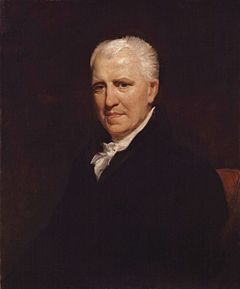
George Crabbe
THE CONFIDANT.
Anna was young and lovely--in her eye
The glance of beauty, in her cheek the dye:
.....

George Crabbe
To My Mother
Gentlest of critics, does your memory hold
(I know it does) a record of the days
When I, a schoolboy, earned your generous praise
For halting verse and stories crudely told?
.....
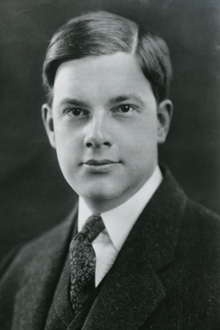
Joyce Kilmer
Gentlest of critics, does your memory hold
(I know it does) a record of the days
When I, a schoolboy, earned your generous praise
For halting verse and stories crudely told?
.....

Joyce Kilmer
Guy Of The Temple
Down the dim West slow fails the stricken sun,
And from his hot face fades the crimson flush
Veiled in death's herald-shadows sick and gray.
Silent and dark the sombre valley lies
.....
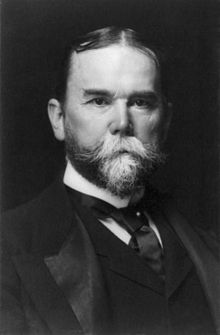
John Hay
Down the dim West slow fails the stricken sun,
And from his hot face fades the crimson flush
Veiled in death's herald-shadows sick and gray.
Silent and dark the sombre valley lies
.....

John Hay
Rokeby: Canto V.
I.
The sultry summer day is done,
The western hills have hid the sun,
But mountain peak and village spire
.....
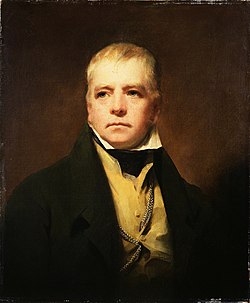
Sir Walter Scott
I.
The sultry summer day is done,
The western hills have hid the sun,
But mountain peak and village spire
.....

Sir Walter Scott
To Delia
Me to whatever state the gods assign,
Believe, my love, whatever state be mine,
Ne'er shall my breast one anxious sorrow know,
Ne'er shall my heart confess a real woe,
.....

William Cowper
Me to whatever state the gods assign,
Believe, my love, whatever state be mine,
Ne'er shall my breast one anxious sorrow know,
Ne'er shall my heart confess a real woe,
.....

William Cowper
The Dying Slave
Faint-gazing on the burning orb of day,
When Afric's injured son expiring lay,
His forehead cold, his labouring bosom bare,
His dewy temples, and his sable hair,
.....
William Lisle Bowles
Faint-gazing on the burning orb of day,
When Afric's injured son expiring lay,
His forehead cold, his labouring bosom bare,
His dewy temples, and his sable hair,
.....
William Lisle Bowles
Gettysburg: A Battle Ode
I
Victors, living, with laureled brow,
And you that sleep beneath the sward!
.....
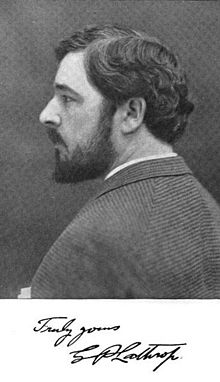
George Parsons Lathrop
I
Victors, living, with laureled brow,
And you that sleep beneath the sward!
.....

George Parsons Lathrop
